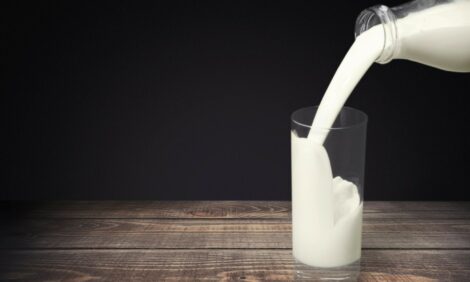



Dairy Farmers Slam Duty Cut of Powdered Milk
BANGLADESH - Dairy farmers have expressed deep concern over a budget proposal that cut import duty of powdered milk by 10 percentage points, saying it could open the floodgates to foreign products."The low import duty on powdered milk will be a threat for the dairy farmers as they are yet to be ready to compete with multinational or foreign companies," said Md Imran Hossain, president of the Bangladesh Dairy Farmers Association (BDFA), yesterday.
He spoke at a press conference the association organised on the issue in the capital's National Press Club.
The Daily Star reports that Mr Hossain said the number of farms and milk production in rural Bangladesh is rising, creating jobs.
Around 50 lakh to 60 lakh people are directly and indirectly employed in the sector, said Shah Emran, general secretary of the BDFA.
According to the Bangladesh Bureau of Statistics, the number of farms rose from 79,942 in 2010-11 to 5.5 lakh in 2016-17.
Emran said the livestock sector was contributing 3.21 per cent to the GDP while 8 percent of the protein demand was met by its meat and milk.
Of the annual demand of 1,450 crore litres of milk, local farms meet 62.4 per cent while the rest is imported.
"Just seven years ago, 60 percent of the demand was met by imports. But the share of powdered milk import is reducing gradually as milk production by local farms is increasing," Mr Hossain said.
According to Mr Hossain, the import duty was initially 51 percent and brought down to 25 per cent in 2017-18. He urged the government to impose a 30 per cent anti-dumping duty to protect local farms.
Mr Hossain alleged that powdered milk was made by mixing vegetable fat from palm or coconut oil with milk that had the cream removed.
Moreover, most of the powdered milk was of low quality and being imported by falsely declaring them as baby food in order to take advantage of the low import duty on the latter, he said.
Of the import, only 1 per cent to 2 per cent was actually powdered baby milk, according to Mr Hossain.
He said foreign companies receive a huge amount of subsidies from their governments that help them reduce costs, whereas Bangladeshi farms get no such support. Bangladesh's grassroots farmers spend Tk 40 on every litre of milk but have to sell it at Tk 30-35, he claimed.
A lack of marketing channels, autocratic mindset of milk processing companies, high price of cattle food, and commercial electricity rates are major challenges confronting farmers and marginal entrepreneurs, alleged Mr Hossain.
"Reducing the import duty will not be a wise decision as it will destroy the sector," Mr Hossain argued.
Md Anisur Rahman, general secretary of the National Milk Development Forum; Azad Chowdhury, head of business development of the Bangladesh SME Corporation Ltd; Md Mutashim Billah, senior programme officer of Oxfam; Kazi Emdadul Haque, executive director of Lal Teer Livestock Ltd; and Sadruzzaman Noor, market development specialist of Care Bangladesh, also spoke.
TheCattleSite News Desk


